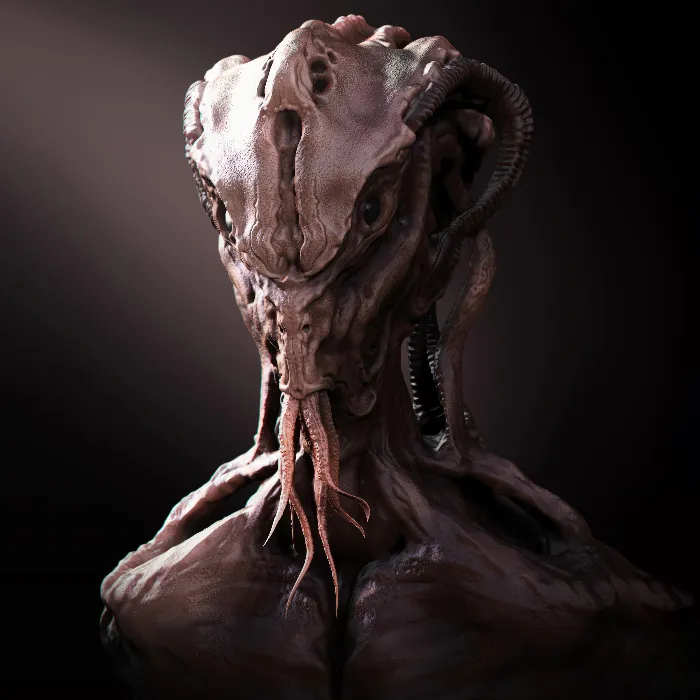Welcome to this guide on customizing the user interface in ZBrush. ZBrush is an extremely versatile software that allows you to bring your creative ideas to life. One of the greatest aspects of ZBrush is that you can customize the User Interface (UI) to suit your preferences. In this guide, I will teach you how to tailor the colors, layouts, and menus in ZBrush to fit your personal needs and preferences. Let's dive in and make the most out of ZBrush.
Key Takeaways:
- You can fully customize the User Interface in ZBrush, including colors and layouts.
- It is important to be familiar with the default layout before making major changes.
- Changes can be saved and restored.
- Be careful when customizing to avoid losing track of the layout.
Step-by-Step Guide
First, I recommend getting familiar with the current User Interface of ZBrush. This way, you can better assess which changes are meaningful. For example, if you are working with ZBrush and the Lightbox is open, you can close it first.
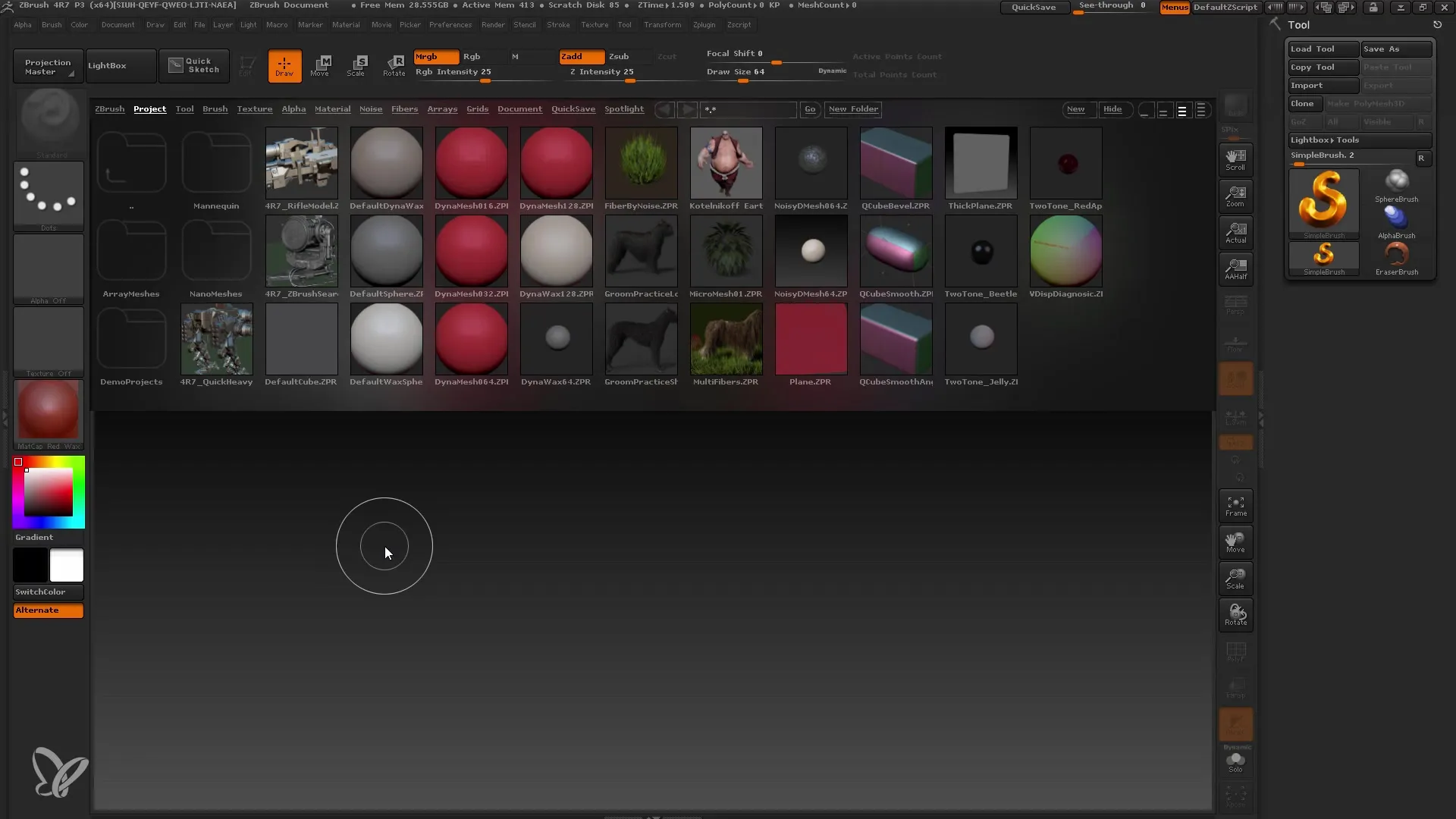
Initially, you can adjust the background gradient in the Viewport. If you find it unpleasant, you can easily remove it. Go to "Document" and set the gradient to zero to display the background without blending.
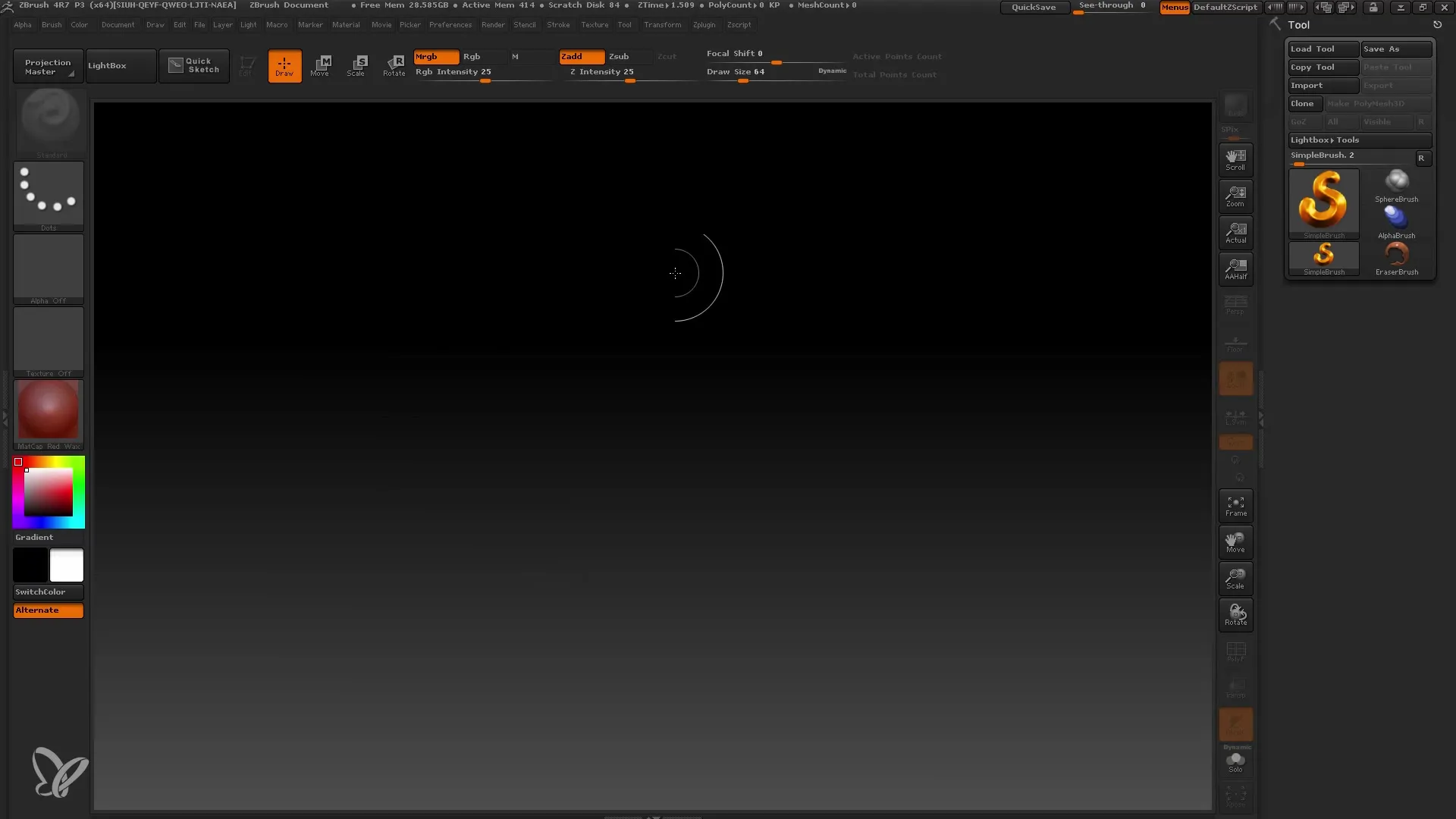
If you wish to see a shade of gray, you can select it with the Color Picker. Simply place the Picker over the desired color in the color field and click on it.
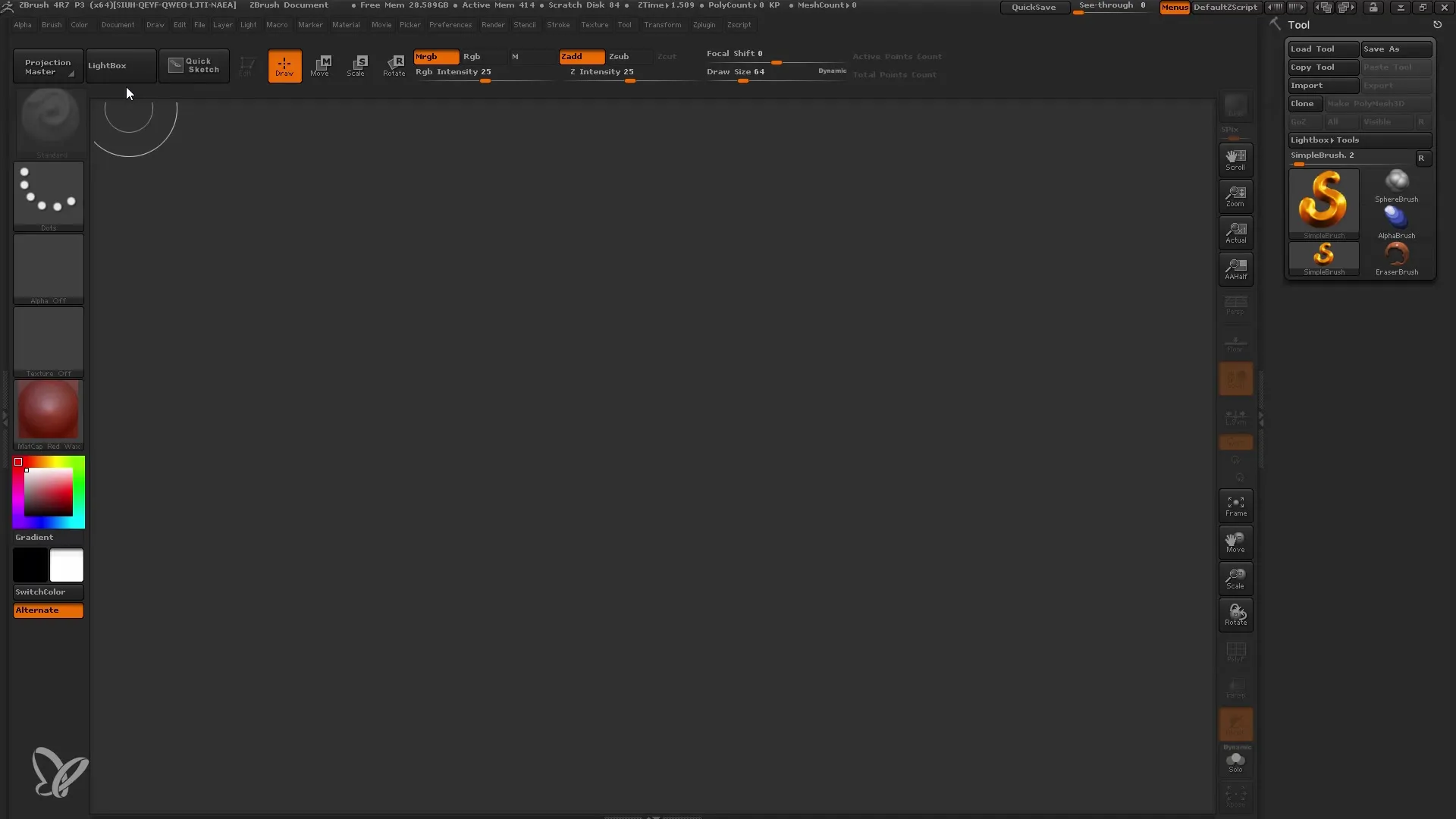
In ZBrush, you will also find predefined color schemes for the User Interface. To select them, go to "Interface colors" in the top menu. There, you can choose different shades of gray or other textures.
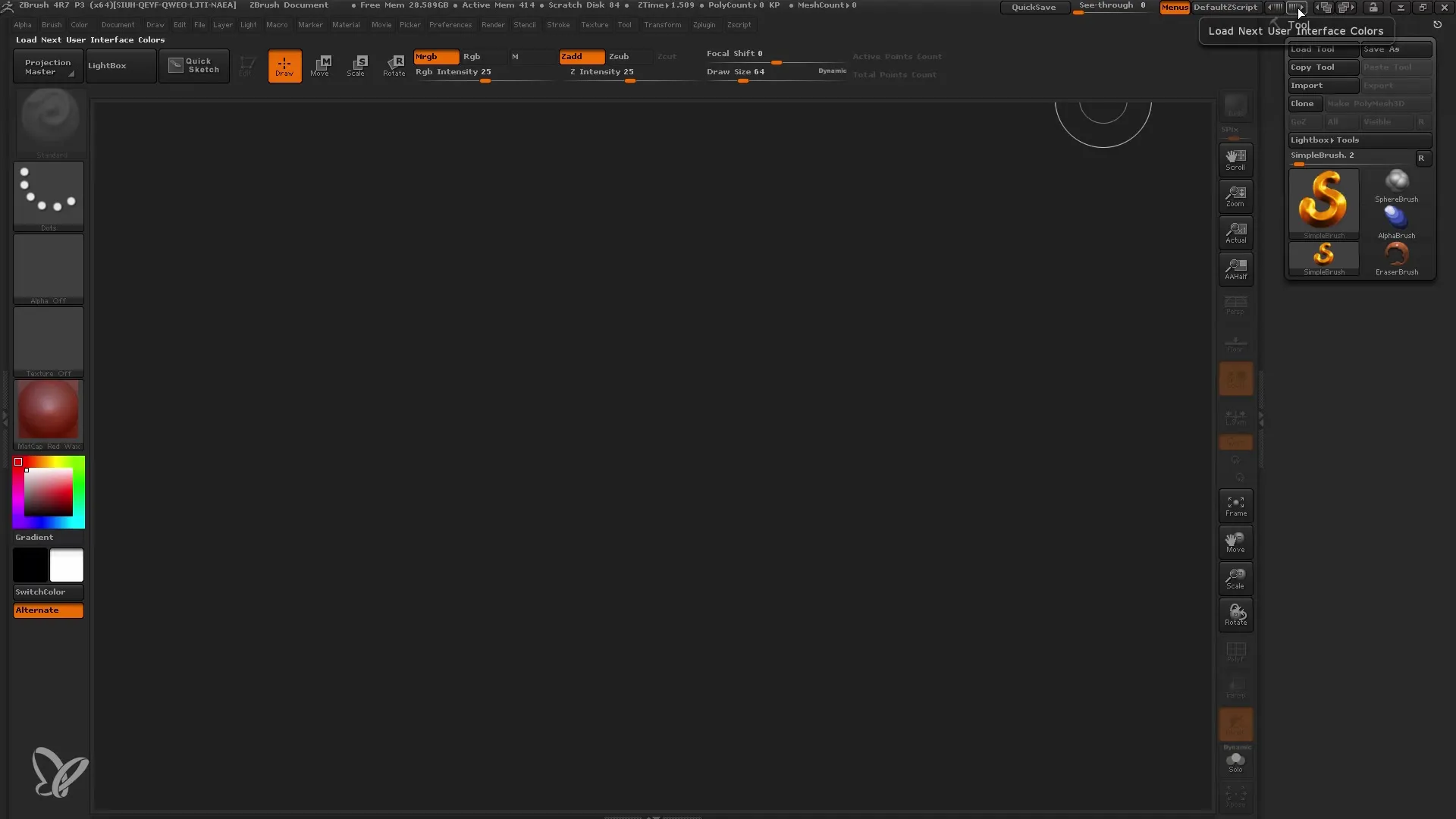
If you want to adjust the arrangement of elements in your User Interface, you can do so as well. ZBrush offers you various layouts, from minimalist to extensive. Consider which layout best suits your work style.
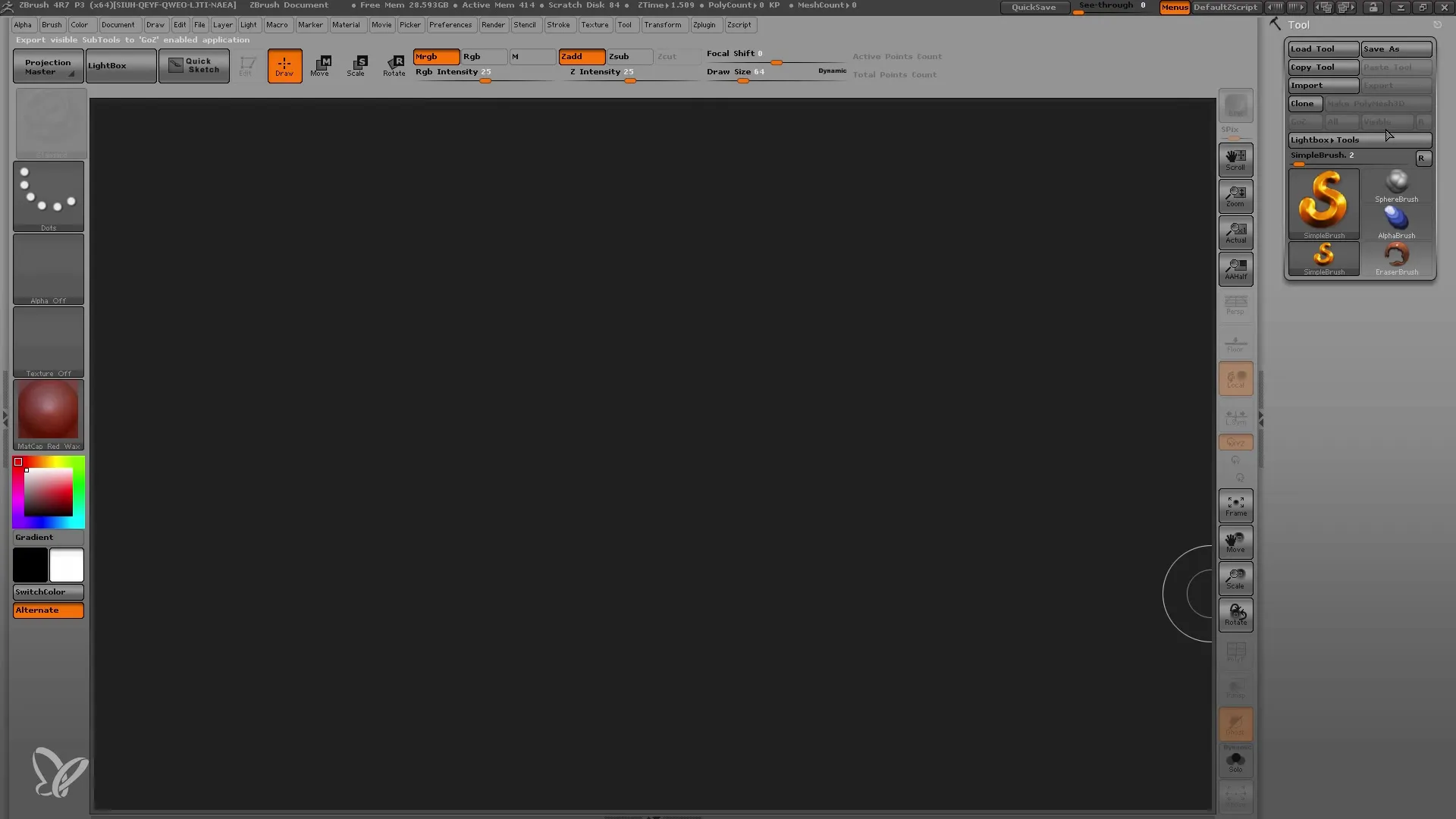
Now is the time to save your settings. This way, you can ensure that your adjustments are retained when you next open ZBrush. Click on "Preferences". There you will find the "Store Config" option. This will save the current configuration of your User Interface.
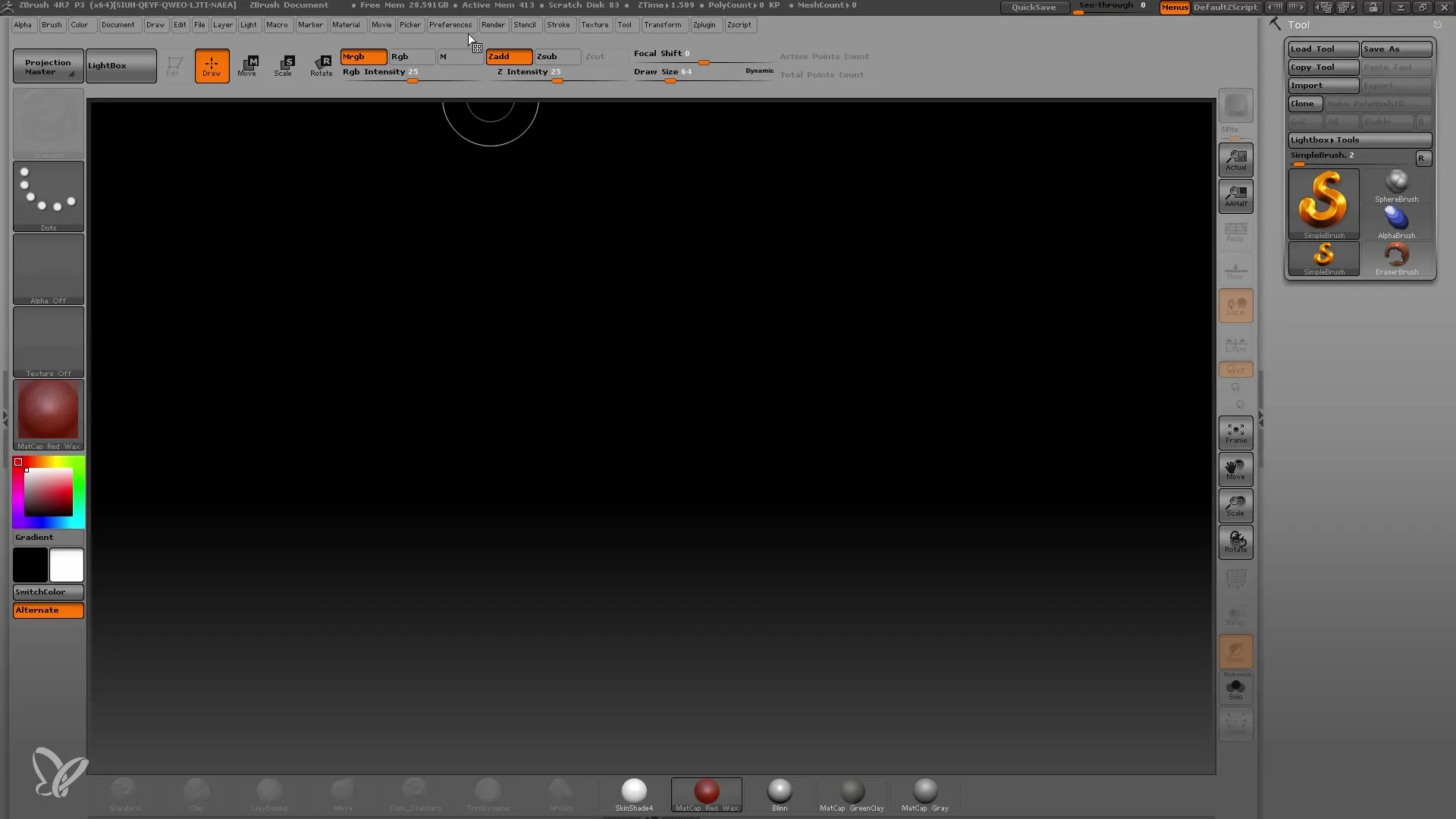
Be cautious when saving your settings, as menus and preconfigured settings can also be altered. You can later return and reset everything to the default layout if you are not satisfied with the changes.
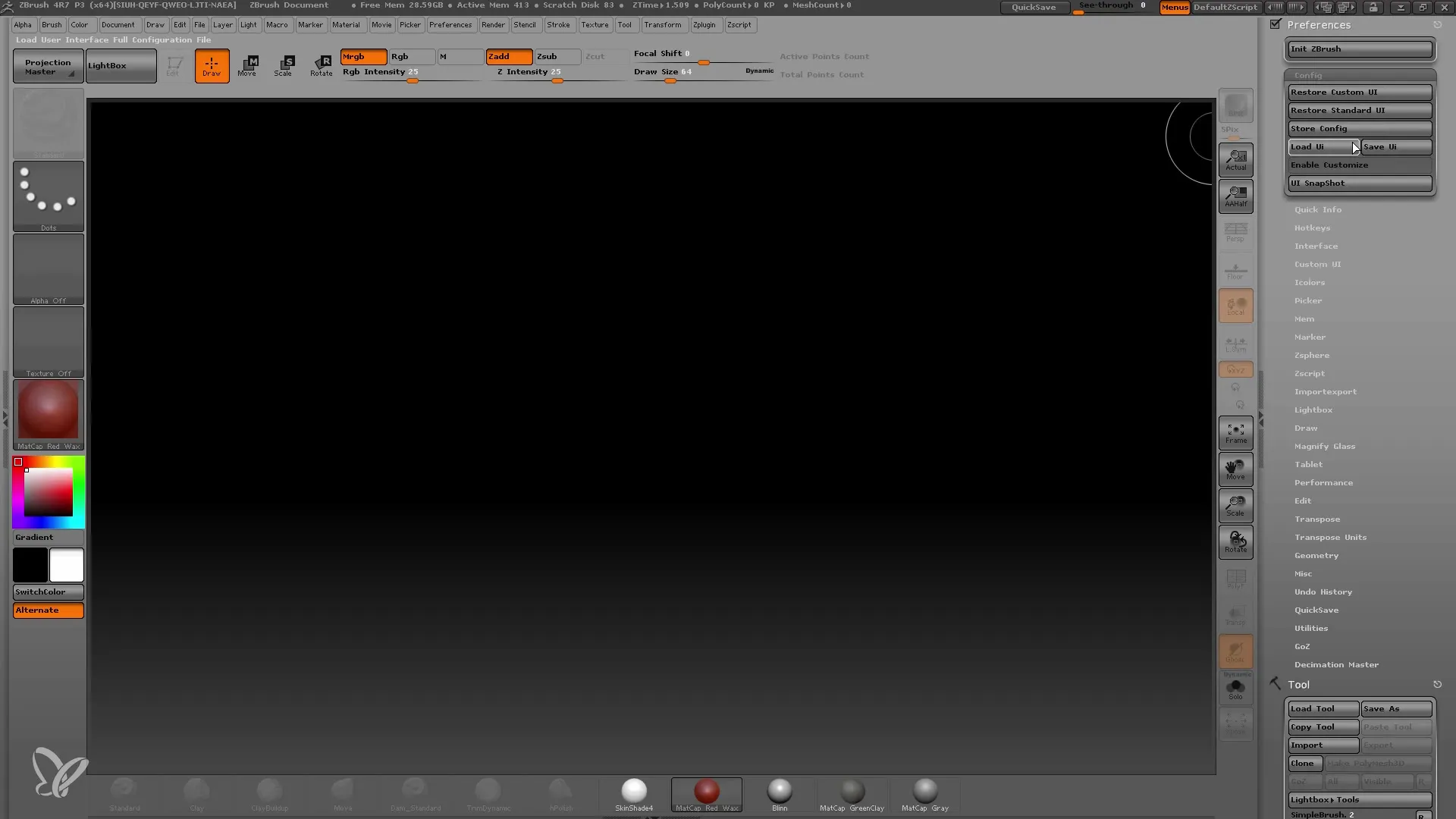
If you wish to continue with further adjustments, you can also change the number of columns in the Lightbox. By default, the number is set to three, but you can decrease it to two or more based on your preferences.
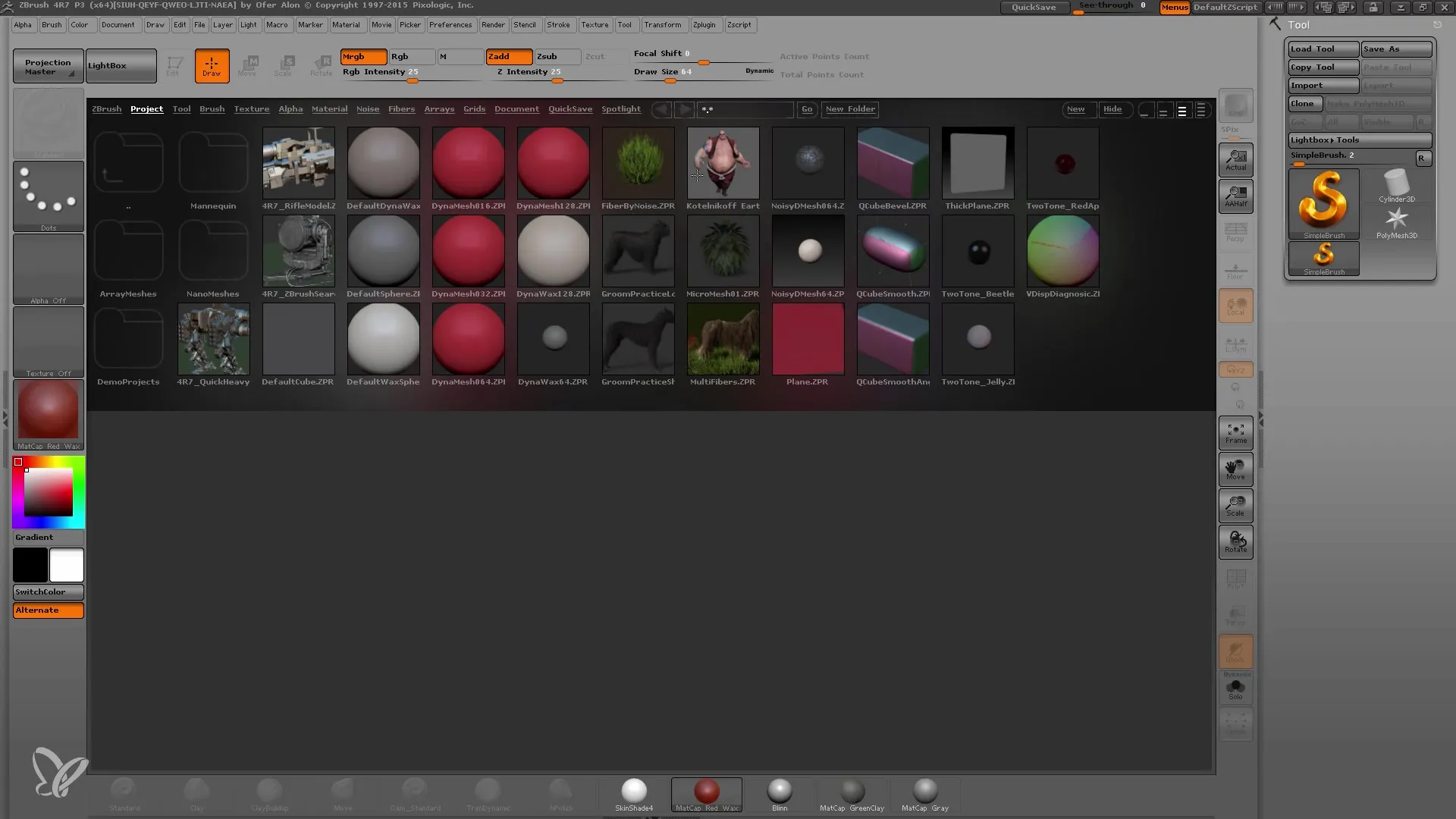
Another useful feature is "Restore Standard UI" and "Init Brushes". This allows you to reset your current User Interface or reset all brush and material settings to their default values.
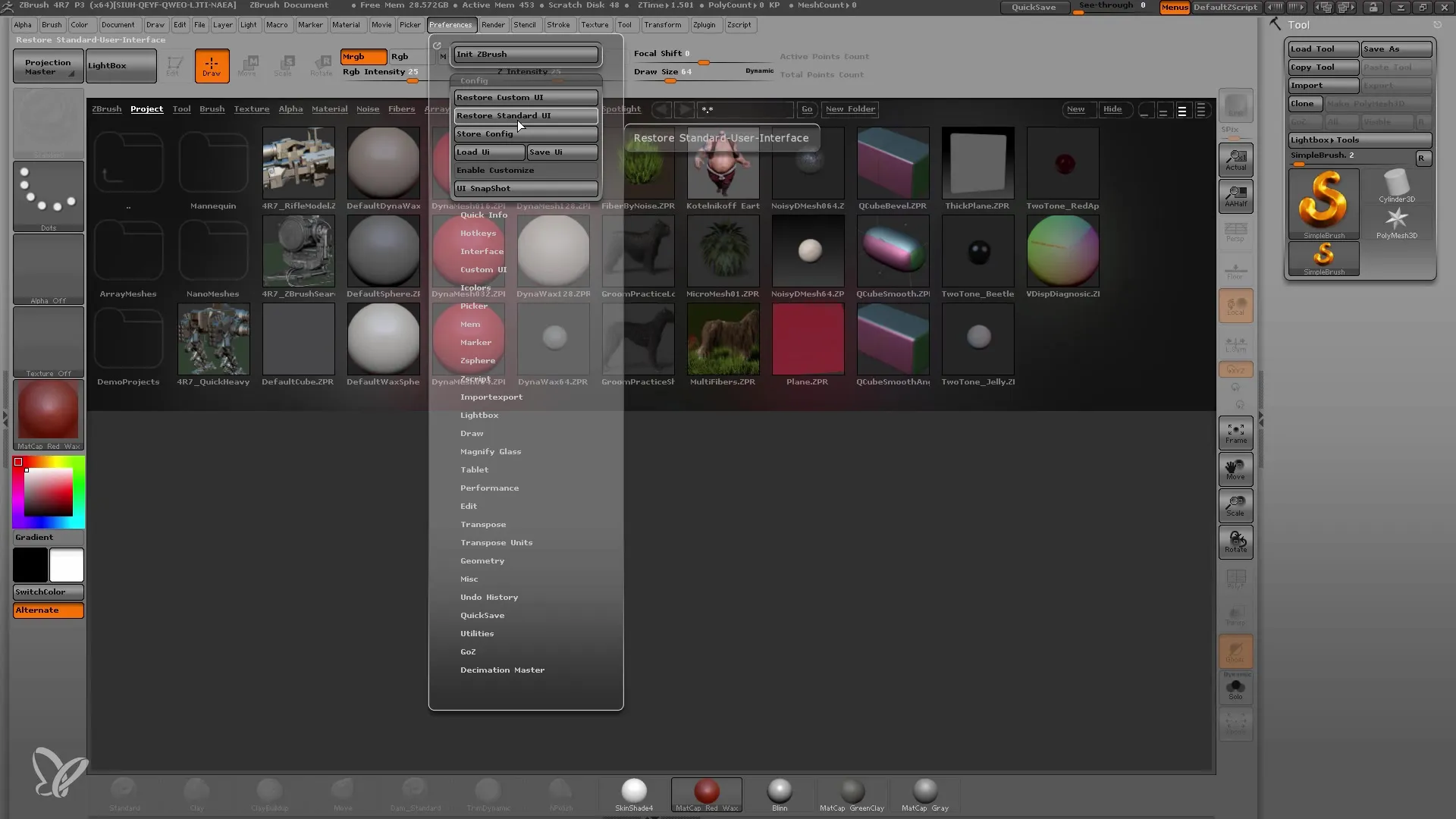
If you want to customize the colors within your UI, go back to "Preferences" and then to "Interface Colors". There, you can replace the default colors with new ones that you prefer. Remember to save the changes to keep them preserved.
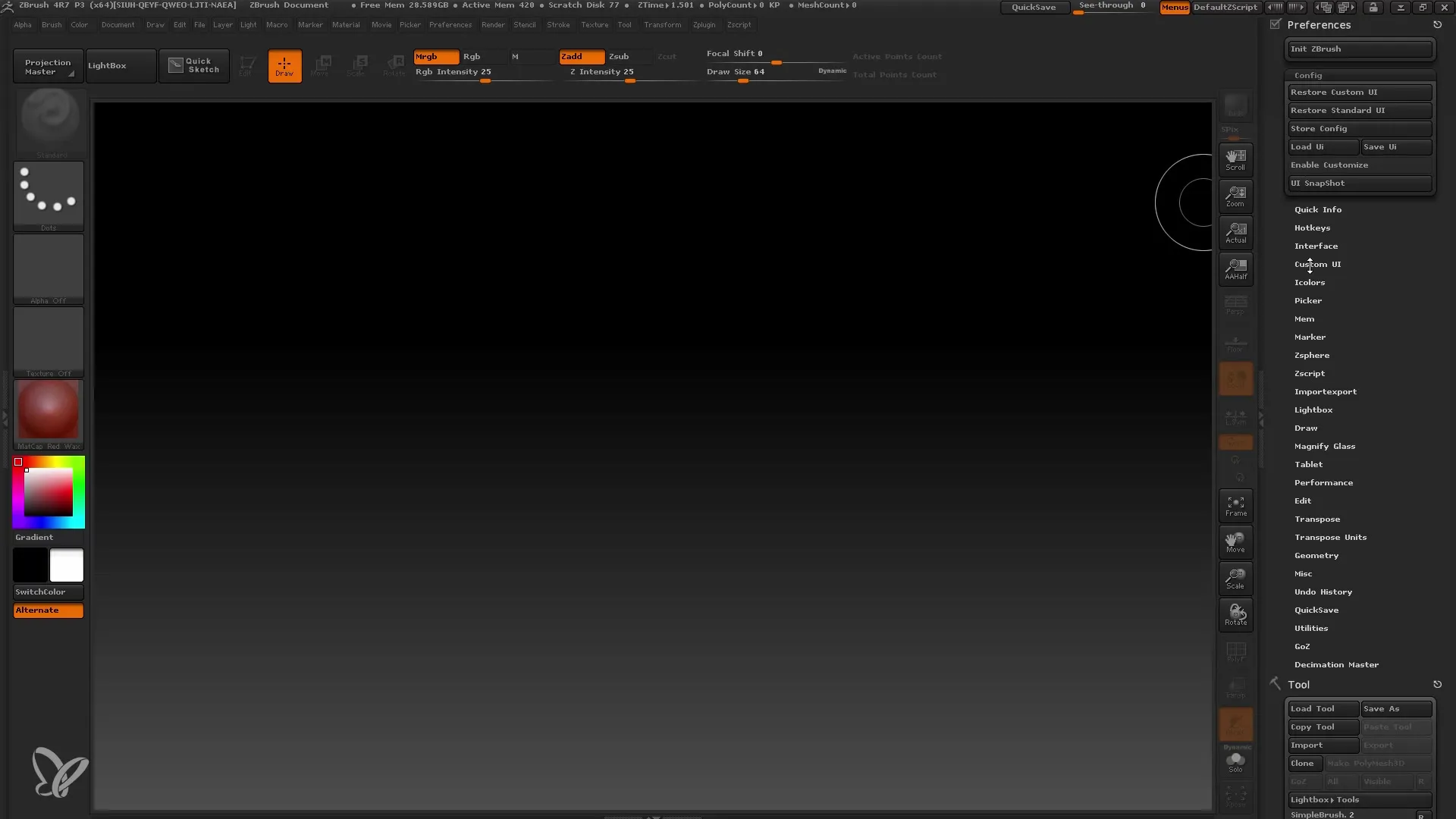
One particularly important aspect is the "Enable Customize" feature. This allows you to customize specific elements of the user interface and move or remove them to your liking. Be careful when making changes, as this can lead to confusion if you no longer know where the default elements are located.
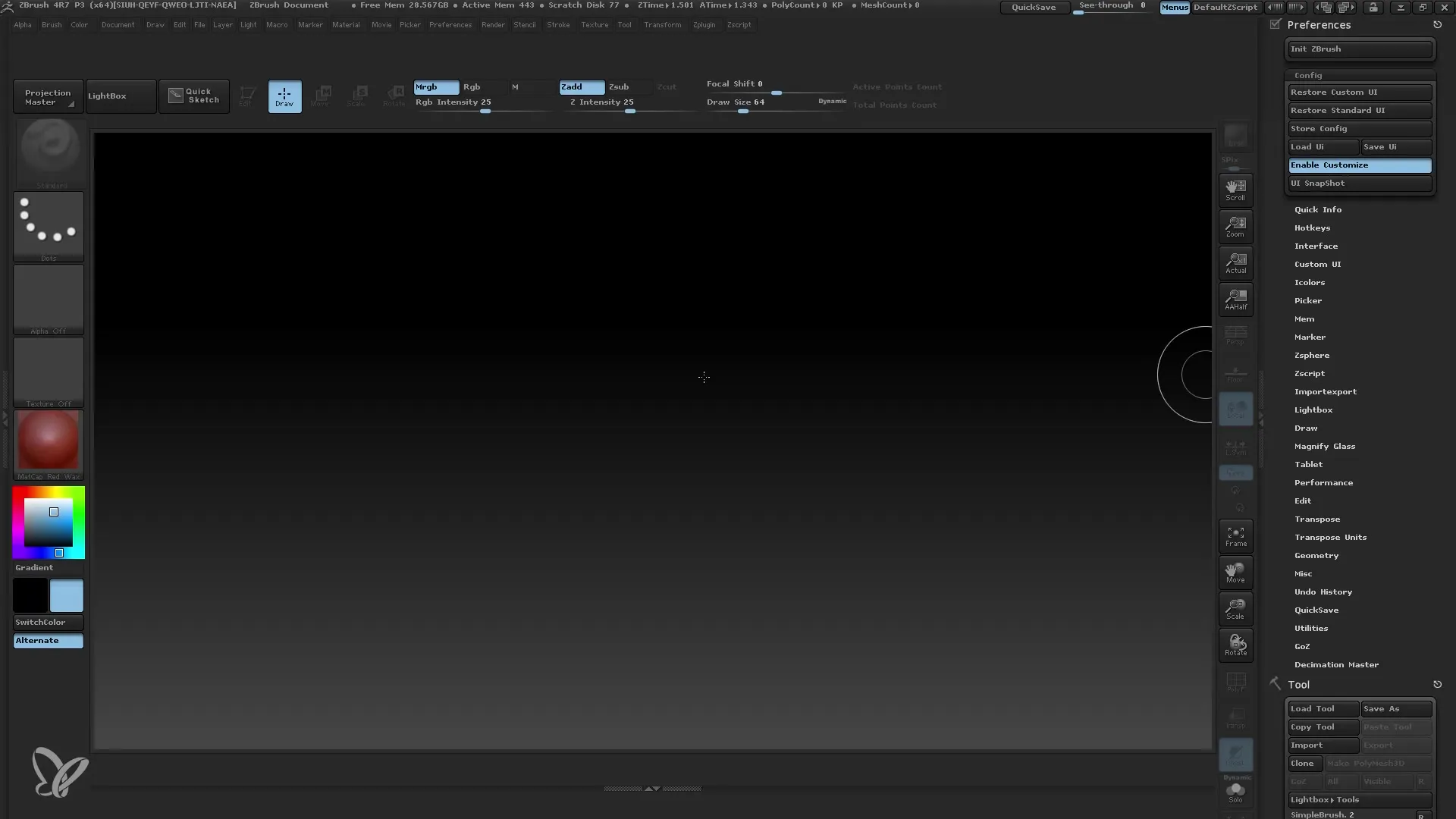
When you are ready to save or import your changes, you can do so in the "Preferences" menu as well. Here you can name and save your configurations.
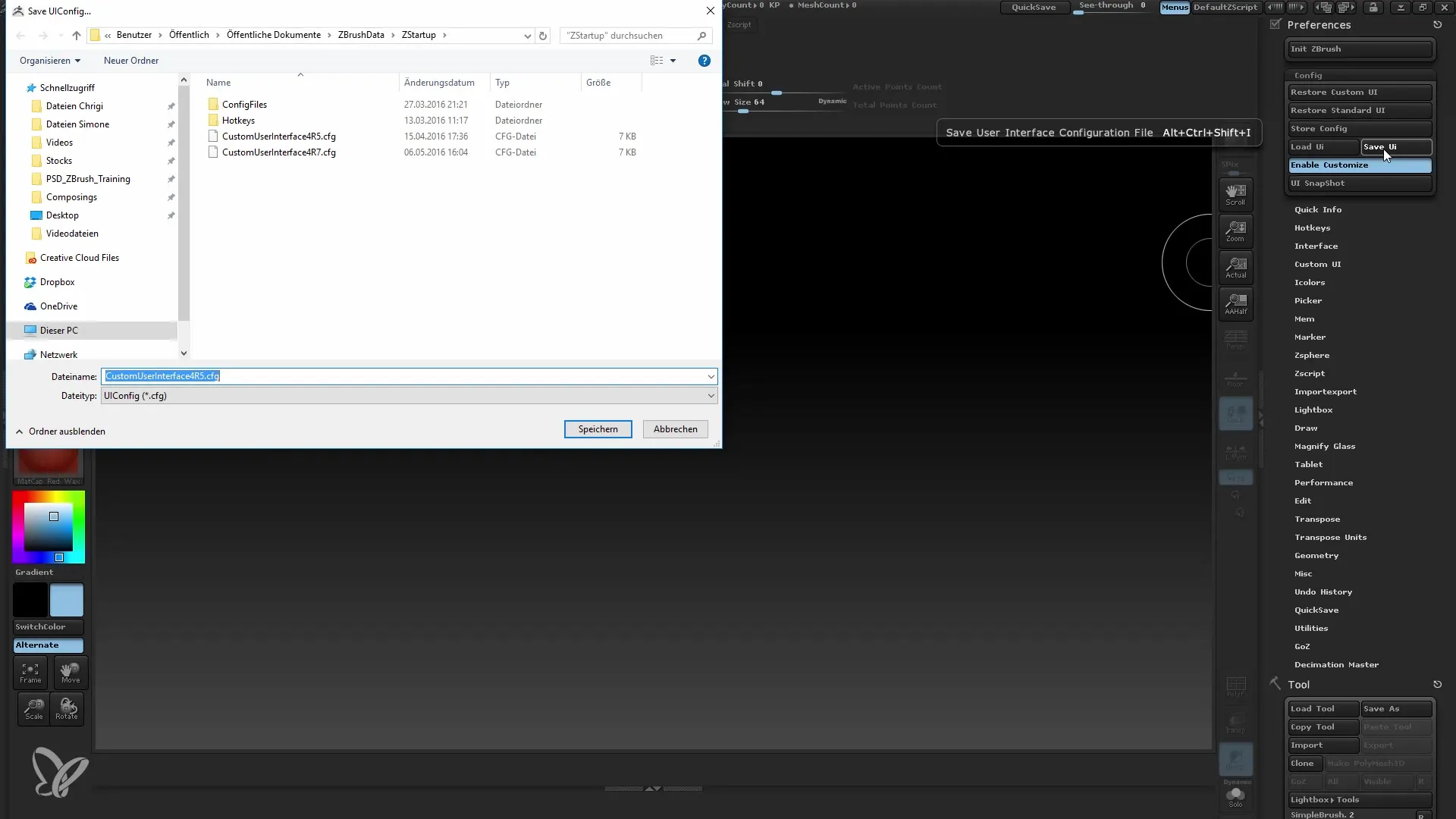
To reset the user interface at any time, use the "Restore Standard UI" option. This is an excellent way to test which configurations work best for you.
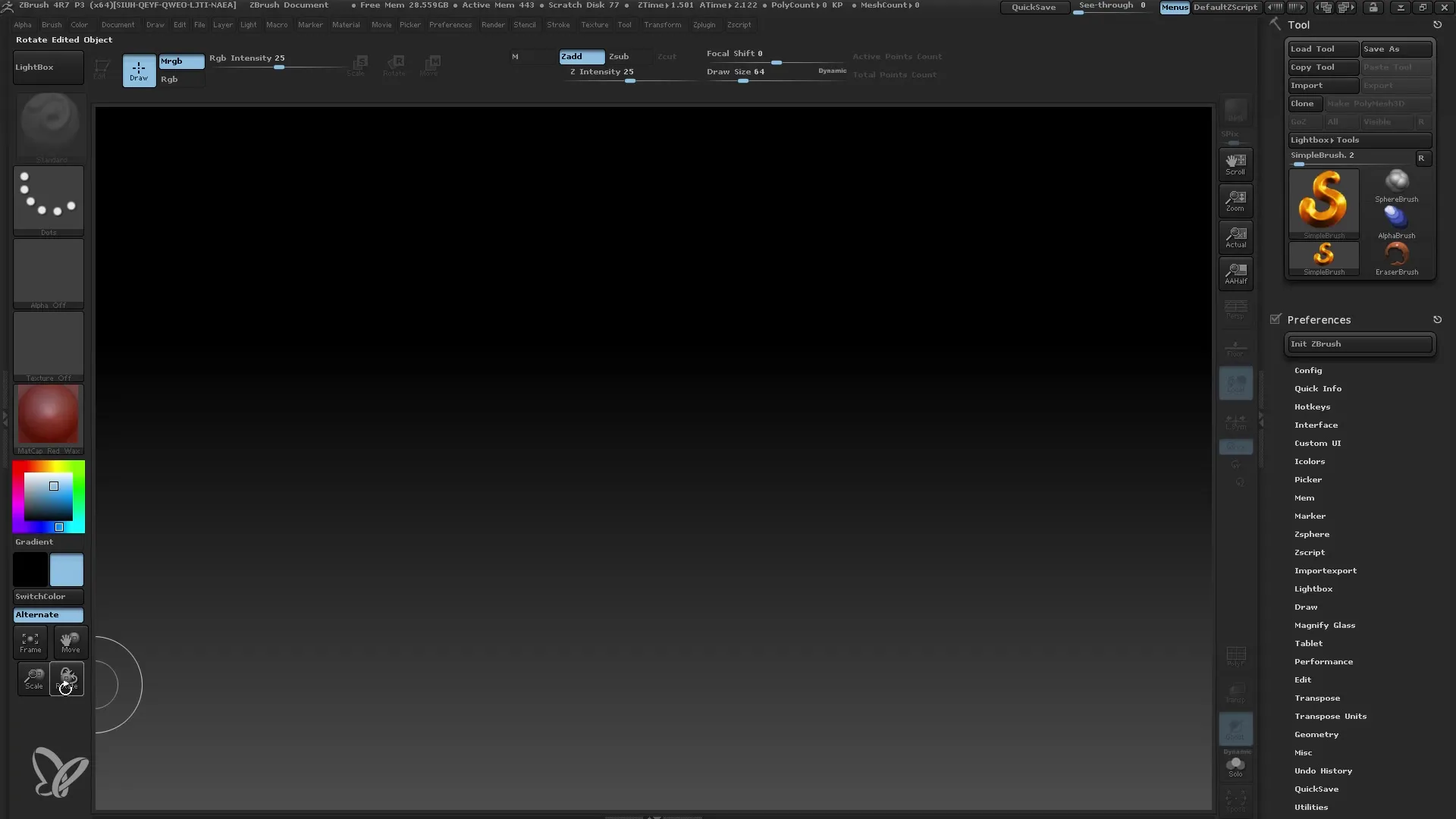
With these steps, you can customize your user interface in ZBrush to your liking. Experiment and find the adjustments that make your work easier!
Summary
In this guide, you have learned how to modify the ZBrush user interface by changing colors, customizing menus, and saving layouts. Remember to be careful and understand the default configuration to avoid confusion.
Frequently Asked Questions
How can I customize the user interface in ZBrush?You can customize the colors, layouts, and menus in ZBrush in the "Preferences" section.
What happens when I save the user interface?The user interface is saved with your current settings and customizations, so it will be available the next time you start ZBrush.
Can I reset to the default user interface?Yes, you can use the "Restore Standard UI" option to restore the original user interface.
What is the Color Picker and how does it work?The Color Picker is a tool that allows you to select and apply colors within the user interface.
How can I save my settings without losing the default configuration?Use the save functions under "Preferences" and be careful about what you save. Consider carefully what you want to customize.
